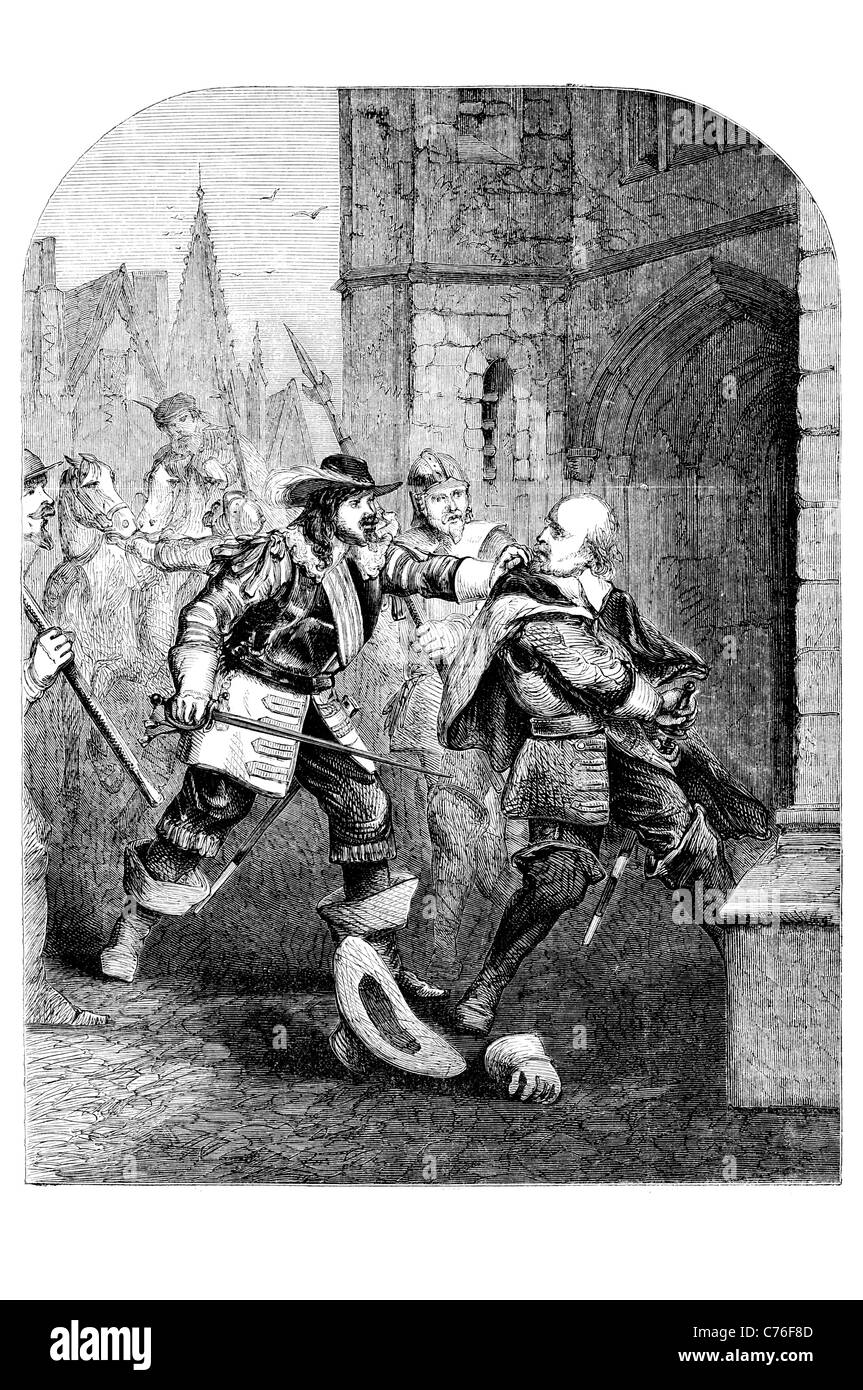Sir John Coventry tutor Edward Sherburne Knight of the Bath Treaty of Breda Second Anglo-Dutch War politics politic parliament

Image details
Contributor:
SOTK2011 / Alamy Stock PhotoImage ID:
C76F8DFile size:
38.5 MB (3.7 MB Compressed download)Releases:
Model - no | Property - noDo I need a release?Dimensions:
2990 x 4502 px | 25.3 x 38.1 cm | 10 x 15 inches | 300dpiDate taken:
2011More information:
Sir John Coventry (c. 1636–1682) was son of John Coventry (died 1652), the second son of lord keeper Thomas Coventry. Between 1655 and 1659, he travelled in the continent with his tutor the poet Edward Sherburne. He matriculated from Queen's College, Oxford in 1660 and was made a Knight of the Bath at the coronation of Charles II, the following year. In 1667, he went with his uncle Henry Coventry to the negotiations leading to the Treaty of Breda, ending the Second Anglo-Dutch War. That year and in the following parliaments of 1678, 1679 and 1681, he was elected for Weymouth. He followed Lord Ashley in politics, and was a fairly active member. On 21 December 1670, owing to a jest made by Coventry in the House of Commons on the subject of the King's amours, Sir Thomas Sandys, an officer of the guards, with other accomplices, by the order of Monmouth, and (it was said) with the approval of the king himself, waylaid him as he was returning home to Suffolk Street and slit his nose to the bone. The outrage created an extraordinary sensation in the Commons, and in consequence Parliament passed an Act ‘to prevent malicious maiming and wounding’ (22 & 23 Chas. II, c.1), a measure known as the "Coventry Act" was passed, declaring assaults accompanied by personal mutilation a felony without benefit of clergy, an Act not repealed until 1828. Sir William Coventry, his uncle, speaks slightingly of him, ridicules his vanity and wishes him out of the House of Commons to be out of harm's way. The character of Amnon in John Dryden's Absalom and Achitophel (1681) is thought to be based on him. He was suspected of having become a Roman Catholic while abroad in the 1650s and evidently was when he made his will in 1667. However during the Exclusion Crisis, he sided with the party seeking the exclusion of the Duke of York from the king's presence.